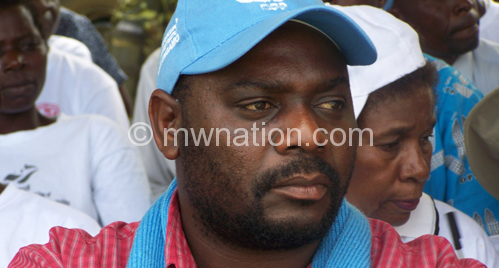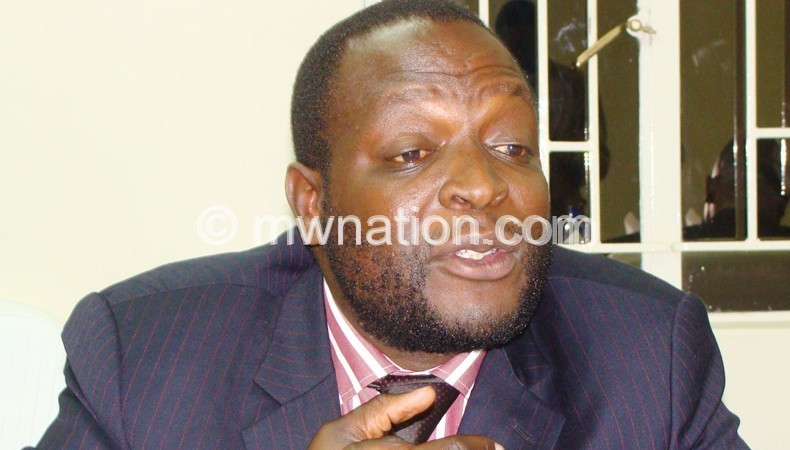Govt lifts PP ban on Mulli, Masangwi businesses
Malawi Government has reversed a 2012 PP administration directive that stopped ministries and departments from doing any business with Mulli Brothers Limited (MBL) and Elvis Freight.
Elvis Freight is a clearing company that belongs to the ruling party former regional governor for the South, Noel Masangwi.
In a memo dated 22 August 2014 addressed to all government ministries and departments that we have seen, Justice and Constitutional Affairs Minister Samuel Tembenu writes that the ban is no longer in force as it has been the subject of costly litigation on the part of government.
“Having thoroughly reviewed the directive, it is hereby advised that the directive is no longer in force and, unless there are valid reasons, the said legal entities should be treated in the same way with all entities transacting business with Malawi Government.
“By copy of this letter, all ministries, departments and government institutions are advised to take note,” writes the minister.
Tembenu confirmed writing the memo but could not take questions.
“The reasons were given (for reversing the directive). But I am not comfortable to comment on memos that are supposed to be internal,” he said.
Hardly four months after assuming office, the Joyce Banda administration stopped government from doing business with the two companies.

Mulli Brothers is managed by Leston Mulli, a DPP diehard who was also very close to former president Bingu wa Mutharika.
Former Minister of Justice and Attorney General in the PP administration, Ralph Kasambara, announced the ban on business dealings with Leston Mulli of MBL Holdings and Noel Masangwi of Elvis Freight and Clearing Agents in a memo, saying the companies were “the subjects of criminal and tax evasion investigations.”
“I write to confirm that the Malawi government has directed that no government department or organisation should conduct any business with the foregoing persons and their companies or businesses until the ongoing criminal and tax evasion investigations have been finalised,”
“So far, overwhelming evidence has been unearthed supporting charges of corruption, money laundering and tax evasion. Any government business extended to them now might easily compromise many laundering investigations and tax implications,” writes Kasambara to the Principal Secretary in the Ministry of Agriculture in a memo dated 5th September, 2012.
In an interview on Thursday, Kasambara refused to shed more light on the matter, saying he did it as government and not as an individual.
“I signed that letter as Attorney General (AG) not as Kasambara, therefore I cannot comment as to whether the decision was right or wrong. Ask the one who has reversed the decision,” said Kasambara.
He added that any government decision is made based on a particular context at a particular time.
Managing director of MBL, Leston Mulli, described the DPP government’s decision as a good development.

“I am a Malawian who has the right to do business in the country. The decision government made then was an infringement on my constitutional right,” said Mulli.
He dismissed the claim that he was being investigated, saying if it were the case, he would be informed.
“The ban was made in 2012 and two years down the line, those so-called investigations have not come out. Why is this so? It was obvious that there was another reason,” said Mulli.
He lamented the loss that he has suffered due to the ban that came in form of loss of business and failure to pay workers and settle bank loans.
Mulli was close to former president, the late Bingu wa Mutharika, before he died in 2012.
Asked if he thought the ban could be as a result of his closeness to Bingu, Mulli said on Thursday he saw no problem with it.
“There is nothing wrong to be close to a head of State. He [Bingu] was the leader and if he asked you to do something, would you say no? As business people, we make sure that we are in good relationship with the government of the day,” he said.
On his part, Masangwi described the ban as political and whose target was the then opposition Democratic Progressive Party (DPP).
“There was no investigation but politics was at play. They claimed that we were funding the DPP and the ban was aimed at weakening it,” he said.
Masangwi also lamented how the ban affected his business, resulting in loss of some property to banks for failure to pay loans.
“Now look at how things can work. Those that wanted us to suffer are now suffering. God can never be happy with such people,” he said.
Political analyst Dr Henry Chingaipe said in Malawi, government is the biggest consumer of goods and services.
Chingaipe said because of that, politicians tend to develop relationships with entrepreneurs and other parties are not comfortable with it.
“For example, Mulli was associated with DPP and when People’s Party (PP) came to power, there was fear that he could use his business to finance the DPP hence the (business) strangulation,” said Chingaipe.
He, however, pointed out that the ban was an executive order which could easily be reversed.
“It was an executive order which had no legal basis. That is why even some donors protested because Mulli was capable of transacting any business he was given,” he said.





